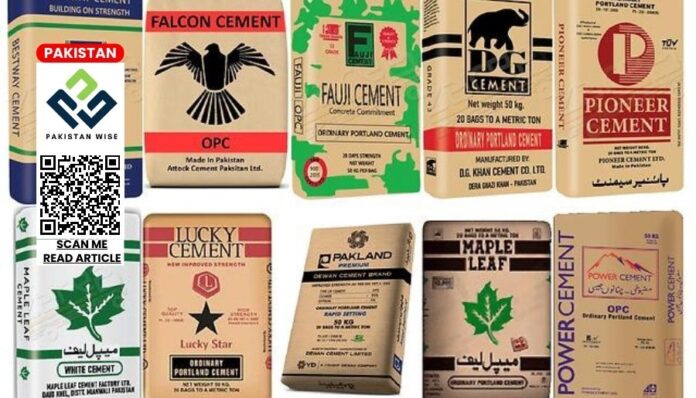The cost of cement in Pakistan has been on an upward trajectory, influenced by various factors that have combined to create an economic challenge. The nation’s currency depreciation and the ongoing record-high levels of inflation have exerted significant pressure on cement prices throughout the country. This increase is attributed to rising energy costs, fluctuations in raw material prices, and the surge in construction activities within Pakistan. In this article, we will delve into the multiple facets contributing to this phenomenon and its potential impact on the construction sector.
The Vital Role of the Construction Sector
The construction sector in Pakistan is not only a cornerstone of economic growth but also intricately connected to the nation’s overall development and infrastructure projects. Cement prices, therefore, play a pivotal role in shaping the landscape of the construction industry, potentially affecting the cost of various projects in the near future.
Current Cement Price Trends
In northern Pakistan, the cost of cement bags has seen a recent increase, with prices now hovering around Rs1,208 per bag. This marks a modest 0.16 percent rise compared to the previous week’s rate of Rs1,206. Similarly, southern regions are experiencing a parallel trend, with an average cement price of Rs1,168 per bag. These fluctuations mirror the ongoing economic challenges facing the country, with inflation and currency devaluation at the forefront of these price variations.
City-Wise Variations in Cement Prices
For the year 2023, cement prices across different cities of Pakistan exhibit variations that can be attributed to regional dynamics and market forces. In Lahore, the cost of a cement bag stands at Rs1,240, whereas in Islamabad and Rawalpindi, it is priced at Rs1,198 and Rs1,199 per bag, respectively. Other cities like Gujranwala, Sialkot, and Faisalabad offer cement prices ranging from Rs1,200 to Rs1,210 per bag. Multan and Sargodha witness rates of Rs1,200 and Rs1,190 per bag, respectively, with Multan experiencing a slightly higher rate at Rs1,214 per bag.
Bahawalpur, Larkana, Bannu, Karachi, Hyderabad, and Sukkur have their own distinct cement prices. In these cities, the range varies from Rs1,144 to Rs1,237 per bag. These variations highlight the impact of regional dynamics on the cost of this essential construction material.
| Lahore | Rs1,240 per bag |
| Islamabad | Rs1,198 per bag |
| Rawalpindi | Rs1,199 per bag |
| Gujranwala | Rs1,200 per bag |
| Sialkot | Rs1,210 per bag |
| Faisalabad | Rs1,200 per bag |
| Multan | Rs1,200 per bag |
| Sargodha | Rs1,190 per bag |
| Multan | Rs1,214 per bag |
| Bahawalpur | Rs1,237 per bag |
| Larkana | Rs1,173 per bag |
| Bannu | Rs1,200 per bag |
| Karachi | Rs1,144 per bag |
| Hyderabad | Rs1,150 per bag |
| Sukkur | Rs1,200 per bag |
Conclusion
The rising cost of cement in Pakistan is a multifaceted issue with various factors at play, from energy costs and raw material price fluctuations to the challenges posed by inflation and currency devaluation. The construction sector, a key driver of economic growth, stands to be significantly affected by these price increases, potentially altering the landscape of construction projects in the near future. It is imperative for stakeholders to monitor and address these issues to ensure the sustainability of the construction industry and the broader economic development of Pakistan.

